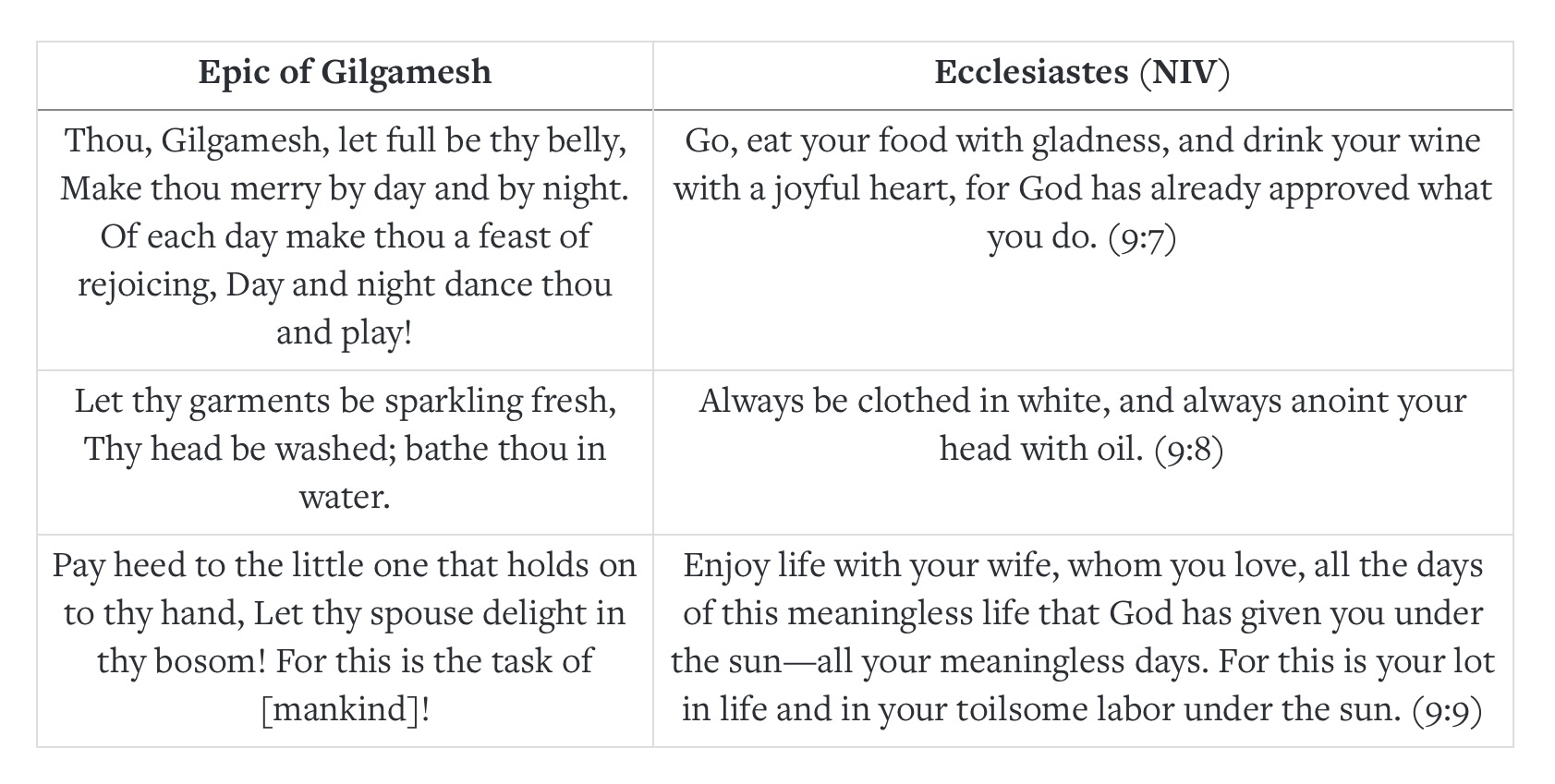Journey Through Proverbs, Ecclesiastes & Jobਨਮੂਨਾ

Ecclesiastes: Behind the Text
Like other “Wisdom” books, Ecclesiastes has similar content and form to other ancient non-biblical texts. One of them is the Epic of Gilgamesh.
Epic of Gilgamesh (William Brown*)
The Mesopotamian Epic of Gilgamesh provides a meaningful ancient Near Eastern parallel to the book of Ecclesiastes. The tavern owner Šiduri addresses Gilgamesh with a speech that recalls the tenor of the biblical book as she discusses fulfillment and death:
Gilgamesh, whither thou rovest thou?
The life thou pursuest thou shalt not find.
When the gods created mankind,
Death for mankind they set aside,
Life in their own hands retaining.
The advice that follows from Šiduri in the tavern has a close correspondence to advice from the Teacher in Ecclesiastes 9. It is placed alongside a parallel passage from Ecclesiastes 9:7-9 in the table below.

Among other things, death is treated differently in the epic. According to Šiduri it is deliberately “set aside” for humanity. Death in the Bible story was not something God “set aside” for us but resulted from human choice (Genesis 3). Death is never mentioned in the biblical creation story. Life, on the other hand, is something God has always intended to share—from the Tree of Life in the beginning (Genesis 2) to Jesus who is himself the Life (John 14:6)—and whose life we are invited to partake (John 14:20). The God of the Bible has consistently set aside life for humanity, and all who seek life in him find it. Notice the promise of Jesus: “I came that they may have life and have it abundantly.” (John 10:10 ESV)
*Source: William P. Brown, Ecclesiastes, 1989, p. 94.
About this Plan

Have you ever wished for a Bible study that could take you beyond surface-level reading? If so, get ready for our journey through Proverbs, Ecclesiastes & Job! You'll get to immerse yourself in Scripture (by looking at key terms and ideas), explore what's behind it (by learning historical-cultural background), and also discover its impact by considering its implications, not only for you, but for the global church. Let's dive in!
More
Related Plans

Journey Through Psalms & Song of Songs

Letting Go and Trusting God

Spirituality and Prayer Life in the Ancient Faith

Daniel Fast - Walking in His Presence Daily.

GRACE Abounds for the Spouse

1 Samuel | Chapter Summaries + Study Questions

Journey Through Jeremiah & Lamentations

Journey Through the Minor Prophets, Part 3

Always Abounding: A 3-Day Devotional on Hope and Faith
